Protecting inheritance from a greedy stepmother requires proactive estate planning and legal safeguards to ensure your assets reach the right heirs.
Protecting Inheritance from a Greedy Stepmother – Red Flags to Watch For
Your stepmother could be plotting to steal your inheritance right now. In this article, I’ll show you exactly how to protect what’s rightfully yours from a potentially greedy stepmother.
I’m Attorney Jesus Orlando Valentino—call me J.O.—founder of Valentino Law PLLC, where we specialize in wills, trusts, and estates. I also create legal education courses for attorneys and insurance professionals nationwide. Today, I’m sharing the exact strategies we use to help our clients safeguard their inheritances from manipulative stepmothers before it’s too late.
If you have a wonderful relationship with your stepmother, that’s truly a blessing. However, staying informed about inheritance protection is still valuable knowledge for anyone with blended family dynamics.
Greedy Stepmother” Scenarios & How They Manipulate Inheritance
Let me tell you about my hypothetical friend Robert, or as I like to call him, “Robbed-ert.” His father remarried when Robert was in college to a woman I’ll call “Maleficent Marcia.” Five years later, his father passed away unexpectedly. Robert assumed he would inherit his father’s beach house—a property that had been in their family for generations. However, when the will was read, Robert discovered everything had been left to Marcia, his stepmother of just five years. She immediately listed the beach house for sale and refused to even let Robert collect his childhood keepsakes. She actually told him, “Your memories aren’t in my budget plan,” while wearing his deceased mother’s jewelry.
This isn’t an isolated case. As a Florida estate attorney, I see this scenario play out weekly. The painful truth is that traditional estate planning often fails when blended families are involved. Without proper planning, your father’s new wife could end up with everything—even assets your father specifically told you would be yours someday. Consider another hypothetical friend, “Miserable Melissa,” whose father had verbally promised her that his family restaurant would pass to her since she had worked alongside him for fifteen years, perfecting her grandmother’s secret recipes. Her stepmother, “Cruella Cash-Grab,” had never once set foot in the kitchen except to criticize the decor. After her father’s sudden heart attack, Melissa discovered that Cruella now owned 100% of the business and was threatening to sell the family recipes to a fast-food chain unless Melissa paid her an exorbitant sum. Cruella actually said, “I hope you saved your tips, honey, because Grandma’s sauce is going to cost you.” All perfectly legal under Florida law.
The “Wicked Stepmother” Playbook
I’ve seen so many families torn apart by inheritance battles with stepmothers that I’ve created what I call the “Wicked Stepmother Playbook”—the five most common tactics stepmothers use to divert inheritances away from biological children. By recognizing these patterns early, you can take the necessary steps toward protecting inheritance from a greedy stepmother and ensuring your wealth remains with your intended beneficiaries.
Scenario 1: The Complete Disinheritance
Your father rewrites his will after remarrying, leaving everything to his new wife with the verbal understanding she’ll “take care of the kids.” I have a hypothetical friend, “Penny-less Penny,” whose father repeatedly assured her that his new wife, “Greedy Gertrude,” would “do the right thing” after he passed. But legally, Gertrude had no obligation to honor those wishes. Once your father is gone, his verbal promises carry zero legal weight. In this case, Greedy Gertrude decided that “the right thing” meant keeping everything for herself and her own children. When Penny asked about her father’s promise, Gertrude smiled and said, “Your father’s promises died with him, just like your inheritance hopes.” Then she drove away in Penny’s father’s vintage Corvette—the one he’d promised to Penny since she was twelve.
Scenario 2: The Trust Manipulation
Your stepmother convinces your father to place assets in joint accounts or poorly structured revocable trusts. This effectively gives her control over those assets after his death. I’ve seen cases where the stepmother was named as the successor trustee of a poorly drafted trust, giving her enormous discretion over when and if the biological children receive anything. One particularly cunning stepmother, “Devious Diane,” used this power to withhold distributions until her stepchildren, the “Trust Fund Twins,” agreed to sell their interests to her at a fraction of their value. When they protested, she smiled sweetly and said, “Your father’s trust said I should distribute funds ‘as needed.’ I’ve determined you need to learn the value of a dollar—specifically, about ten cents on the dollar for your shares.” She later used those assets to fund her “Find Me a Fourth Husband” singles cruise.
Scenario 3: The Homestead Trap
Florida homestead laws create a significant vulnerability most people don’t understand until it’s too late. If your father owned a home and lived in it with his new wife, Florida law restricts what can happen to that property when he dies. If he has descendants (like you) who aren’t also her children, your stepmother has two options with a deadline to decide:
- Option 1: She can choose a “life estate” – meaning she gets to live in the home for the rest of her life, but after she dies, it passes to you. I call this the “Hotel California” option – she can check in for life, but she can never truly own it.
- Option 2: She can choose to take a 50% ownership interest in the property as a tenant in common with you and your siblings sharing the other 50%. I call this the “Half-and-Half” option.
Consider my hypothetical friend, “Homeless Harry,” whose childhood home had been in the family for four generations. His father had remarried just two years before passing away to “Wrecking Ball Wanda.” Despite clear instructions in the will leaving the home to Harry, Wanda received the property through homestead laws and promptly sold it to developers who demolished it. She took a selfie in front of the bulldozer and texted it to Harry with the caption “Goodbye memories, hello Miami condo!” Then she used the proceeds to fund her new lifestyle brand, “Widows Who Win,” a jewelry line made from melted-down family heirlooms.

Scenario 4: The Undue Influence Scheme
This is particularly common when your father is elderly or in declining health. The stepmother gradually isolates him from family and friends, while simultaneously exerting pressure to change estate plans in her favor. In one hypothetical scenario, “Isolation Ivy” convinced her husband that his children, the “Forgotten Fosterlings,” didn’t care about him anymore—while simultaneously screening his calls and intercepting letters and gifts from those same children. She actually installed a special mailbox with two compartments—one that she checked for cards from his children, which went straight to the shredder, and another for the fake “We’re too busy to visit” postcards she’d send herself on their behalf. By the time he died, he had completely rewritten his estate plan to exclude them, with Ivy crocodile-crying at the attorney’s office about how “ungrateful” his children were while literally wearing their mother’s wedding ring.
Scenario 5: The Second Family Priority
Your stepmother has children of her own, and your father begins to treat her children as financial priorities equal to or above his biological children. This often happens subtly over time. Consider my hypothetical friend, “Stiffed Steve,” who discovered that his father had been paying Ivy League college tuition for his stepmother’s children—the “Privileged Pair”—while telling Steve there wasn’t enough money to help with his community college education. Steve’s stepmother, “Favoritism Fran,” would actually say things like, “Well, MY children need the BEST education because they have POTENTIAL.” After his father’s death, Steve discovered that his father had also set up trust funds for his stepsiblings worth millions, while leaving Steve a collection of fishing lures and a note that said “Hope you catch something big someday!” The stepmother later “accidentally” donated even those to Goodwill, texting Steve, “Oops, thought it was junk! Kind of like your inheritance hopes, LOL!”
Warning Signs to Watch For
Based on hundreds of cases I’ve handled, here are the ten warning signs that your inheritance might be at risk:

Red Flag #1: Isolation
Your stepmother begins restricting access to your father, particularly when he’s ill or vulnerable. I call this the “Velvet Rope Routine.” Suddenly family gatherings become scarce, phone calls aren’t returned, or visits are discouraged. One stepmother, “Bouncer Betty,” turned her stepson’s childhood home into an exclusive club where he couldn’t get past the velvet rope. She actually installed a video doorbell just to say “Sorry, your father is napping” at 2pm on a Saturday while he could clearly see his dad watching golf in the background.
Red Flag #2: Sudden Estate Plan Changes
Your father makes significant changes to his will, trusts, or beneficiary designations shortly after remarrying or during illness. This is especially concerning if these changes benefit the stepmother at the expense of biological children. “Document Dora” loves to schedule those attorney visits while you’re on vacation, ensuring your father signs everything while you’re sipping mai tais, oblivious to your vanishing inheritance.
Red Flag #3: Financial Secrecy
Your father becomes unusually secretive about financial matters or changes financial advisors to ones chosen by your stepmother. “Secret Keeper Sally” insists that “money talk is private between husband and wife” while simultaneously cataloging every heirloom in the house on her “Future eBay Listings” spreadsheet.
Red Flag #4: Asset Transfers
You notice assets being transferred into joint ownership with the stepmother or into accounts solely in her name. “Transferring Tina” has mastered the art of getting her name on every deed, title, and account faster than you can say “Wait, wasn’t that grandma’s silver?”
Red Flag #5: Communication Breakdown
Your stepmother inserts herself into all communications with your father, answering his phone, responding to emails directed to him, or speaking for him during family discussions about financial matters. “Interception Irene” becomes your father’s personal secretary, social media manager, and spokesperson all rolled into one manipulative package.
Red Flag #6: Undue Interest in Assets
Your stepmother shows unusual interest in specific family heirlooms, properties, or investments that have sentimental value to you or that have been verbally promised to you. “Inventory Ingrid” starts asking suspiciously detailed questions about which items “really matter to you emotionally” while taking notes and measuring spaces in her vacation home.
Red Flag #7: Health Information Control
Your stepmother restricts information about your father’s health status or prevents you from participating in medical decisions. “Hospital Harriet” suddenly becomes a HIPAA expert, citing “privacy regulations” while sharing detailed updates with her own children and best friends.
Red Flag #8: Legal Representative Changes
Your father suddenly changes his powers of attorney, healthcare surrogate, or personal representative to your stepmother, removing biological children from these roles. “Power-Grabbing Patty” loves to wave those fresh legal documents around, saying “He trusts ME with his life decisions now, isn’t that sweet?”
Red Flag #9: Family Business Interference
If your family owns a business, your stepmother begins taking an active role despite having no previous experience or expertise in the industry. “CEO Cynthia” suddenly believes her experience selling scented candles on Etsy qualifies her to run your father’s manufacturing company.
Red Flag #10: Relationship Deterioration
You notice a marked change in your relationship with your father that coincides with his new marriage, particularly if he begins criticizing you in ways that echo sentiments expressed by your stepmother. “Whispering Winona” has perfected the art of saying, “I would NEVER say anything against your children” while simultaneously planting seeds of doubt in your father’s mind.
If you notice these signs, it’s time to have a respectful but direct conversation with your father about his estate plans. This isn’t about being greedy—it’s about ensuring his true wishes are properly documented and legally protected.
Legal Protection Strategies for Protecting Inheritance from a Greedy Stepmother
Now for the solutions. Here are eight legal strategies I use with my clients to protect inheritances from being diverted to stepmothers:
Strategy 1: Irrevocable Trusts
An irrevocable trust created before your father remarries can protect specific assets for you while providing income for your father during his lifetime. Unlike revocable trusts, once assets are placed in an irrevocable trust, they generally can’t be reached by a future spouse. I call this the “Stepmom-Proof Vault.”
Take the hypothetical example of “Victorious Victor.” His father owned valuable oceanfront property in Palm Beach. Before remarrying “Beach House Betty,” his father transferred the property into an irrevocable trust with Victor as the remainder beneficiary. The trust allowed his father to use the property during his lifetime, but after his passing, it transferred directly to Victor—completely bypassing probate and Betty’s grabby hands. When Betty realized she couldn’t touch the property, she actually threw Victor’s father’s flip-flops into the ocean and screamed, “If I can’t have the beach house, neither can your memory!” Victor just smiled and handed her a moving box.
The key details that made this work: the trust was created before the marriage, it was irrevocable, and the terms were clear about the ultimate beneficiary.
Strategy 2: Life Insurance Designation
Your father can purchase life insurance naming you as the irrevocable beneficiary, creating an inheritance that bypasses probate and his will entirely. This strategy creates a separate pool of assets specifically for children from a previous marriage.
Consider the hypothetical case of “Lucky Laura,” whose father set up a $1 million life insurance policy specifically to provide for her and her siblings. Because the beneficiary designations were properly structured, this money passed directly to them without his second wife, “Policy-Pilfering Paula,” having any claim to it. When Paula realized there was a life insurance policy she couldn’t touch, she actually said, “But I need that money for my grief shopping therapy!” Laura just replied, “I hear Costco has great prices on tissues.”
Strategy 3: Prenuptial Agreements
A well-drafted prenuptial agreement ensures clear asset division and inheritance protection. Florida estate planning laws outline how to legally safeguard assets in blended families. Read more about Florida Estate Planning Laws.
If your father is planning to remarry, a prenuptial agreement can clearly outline what assets are intended for his children versus his new spouse. This is often the cleanest solution, but it requires foresight and open communication before marriage.
A comprehensive prenuptial agreement should address:
- Assets acquired before the marriage
- Inheritance rights
- Business interests
- Retirement accounts
- Real estate holdings
- Family heirlooms and personal property
In a hypothetical scenario, a father had a collection of classic cars worth over $2 million. The prenuptial agreement specifically identified these as separate property that would pass to his son, “Muscle Car Mike,” regardless of elective share or other spousal claims. When his stepmother, “Vroom-Vroom Veronica,” tried to claim the cars after his death, she was shocked to discover the prenup had created an impenetrable legal barrier. She had to settle for the Toyota Camry while Mike got the vintage Mustang collection.
Strategy 4: Florida Lady Bird Deeds
These special deeds allow your father to transfer property to you upon his death while maintaining full control during his lifetime. They’re particularly valuable for protecting real estate from a stepmother’s claims while avoiding probate entirely.
A Lady Bird Deed, also known as an enhanced life estate deed, works differently from traditional life estate deeds because your father retains the right to sell, mortgage, or otherwise dispose of the property during his lifetime without your consent. But upon his death, any remaining interest automatically transfers to you.
In another hypothetical example, “Smart Sam” convinced his father to use a Lady Bird Deed for the family lake house before marrying “Real Estate Rachel.” After his father’s death, Rachel was stunned to discover she had no claim to the property despite being his widow. When she complained to the probate attorney, he simply showed her the deed and said, “The Lady Bird has flown, and she took the lake house with her.”
Strategy 5: Documented Gifts
Strategic gifting during your father’s lifetime can reduce his taxable estate while ensuring you receive specific assets. Current tax laws allow individuals to gift up to $17,000 per year per recipient without filing a gift tax return.
Consider the hypothetical case of “Brilliant Brittany,” whose father systematically gifted shares of his business to her over a ten-year period before his remarriage to “Corporate Carla.” By the time he passed away, Brittany already legally owned 60% of the company, putting her in a controlling position regardless of what happened with his estate. When Carla tried to claim an ownership interest in the business, Brittany simply handed her the company bylaws and said, “I believe the word you’re looking for is ’employee,’ not ‘owner.'”
Strategy 6: Qualified Personal Residence Trusts (QPRTs)
This specialized trust allows your father to transfer his home to you while retaining the right to live in it for a specified period. This can be particularly valuable in Florida, where homestead laws would otherwise automatically transfer the home to a surviving spouse.
The key advantage is that once the QPRT is established, the home is no longer part of your father’s estate for purposes of calculating the elective share or homestead rights. In a hypothetical scenario, a father placed his $3 million Naples beachfront condo in a QPRT with a 15-year term. When he passed away 12 years later, his widow, “Beachfront Bonnie,” had no claim to the property because it was already legally designated to transfer to his daughter, “Prudent Pam.” When Bonnie protested that she should get the condo, the estate attorney simply said, “That ship has sailed—actually, it sailed three years ago when the trust was created.”
Strategy 7: Family Limited Partnerships (FLPs)
For families with significant business interests or investment portfolios, an FLP can be an effective tool for maintaining control while gradually transferring ownership to children from a previous marriage.
The parent typically serves as the general partner with complete management control, while children are limited partners. Over time, ownership interests can be transferred to the children while the parent maintains decision-making authority. This structure can protect business assets from a stepmother’s claims while providing tax benefits.
In another hypothetical example, “Business-Savvy Brad” and his siblings became limited partners in their father’s construction company FLP years before he married “Contractor Connie.” After their father’s death, Connie discovered she had no management rights in the business despite inheriting her husband’s general partner interests. When she tried to fire Brad as CEO, the partnership agreement gave him veto power over management changes. He told her, “Feel free to collect your distribution checks, but the corner office stays with me.”
Strategy 8: Specific Bequest Trusts
These trusts identify specific assets or dollar amounts that go directly to named beneficiaries before the remainder of the estate is distributed. When properly structured, these bequests take priority over spousal elective share calculations.
Consider a hypothetical case where a father created a trust specifying that his vacation home and $500,000 would pass directly to his daughters, “The Bequest Besties,” before any other distributions. This ensured his daughters received something meaningful regardless of his new wife, “Nothing-For-You Nancy’s” claims on the estate. When Nancy complained to the probate judge, he simply pointed to the trust document and said, “The specific bequest comes first—it’s spelled out right here in black and white.”
Special Situations When Protecting Inheritance from a Greedy Stepmother
Blended Family Dynamics
When your father has children with his new wife in addition to children from previous relationships, the inheritance landscape becomes even more complex. In these situations, I often recommend a “Family Bank” trust structure.
This approach establishes separate but parallel trusts for different branches of the family. For example, one trust might be designated for children from the first marriage, another for children from the second marriage, and a third to provide for the current spouse. The trusts can be funded with life insurance, investment accounts, or other assets to ensure equitable distribution according to your father’s wishes.
Consider a hypothetical scenario where a father had two children from his first marriage and one with his second wife, “Bonus Baby Barbara.” He created a trust structure that provided equally for all three children’s education, while acknowledging the different needs of his current wife versus his ex-wife. The structure protected everyone’s interests while minimizing potential conflicts. When Barbara later tried to redirect more assets to her biological child, the trustee simply pointed to the trust terms and said, “The bank has specific withdrawal limits for each account holder.”
Business Succession Issues
If your father owns a business, protecting your inheritance becomes even more complicated. I recommend a three-part approach:
- Establish a formal business succession plan that clearly outlines ownership transfer upon your father’s death.
- Consider a buy-sell agreement funded with life insurance that gives you the option to purchase business interests from your stepmother at a predetermined fair market value.
- Begin transitioning operational roles and ownership stakes during your father’s lifetime to establish your position in the company.
Consider the hypothetical case of “CEO Chris,” whose father owned a successful construction company. A succession plan was implemented that gradually transferred operational control to Chris while his father was still alive. We also put in place a buy-sell agreement that allowed him to purchase his stepmother “Hostile Takeover Helen’s” inherited shares at a fair price after his father’s passing. This prevented a situation where she could have sold to outside interests. When Helen tried to demand twice the agreed price, Chris simply showed her the signed buy-sell agreement and said, “This is a legally binding contract, not a negotiation.”
Dementia and Capacity Concerns
A particularly heartbreaking scenario occurs when a stepmother takes advantage of a father’s diminishing mental capacity. To protect against this:
- Encourage your father to undergo regular cognitive assessments after age 65
- Consider establishing a revocable trust with a professional co-trustee who can take over if capacity becomes an issue
- Ensure durable powers of attorney name trusted individuals who will act in your father’s best interest
In one hypothetical scenario, a will change was successfully challenged that occurred when the father was suffering from early Alzheimer’s. The key evidence was a geriatric psychiatrist’s evaluation from just three weeks before the will change, documenting the father’s vulnerable mental state. The stepmother, “Manipulative Mildred,” had convinced him to sign a new will leaving everything to her while he couldn’t remember his own children’s names. The court invalidated the new will, with the judge telling Mildred, “Taking advantage of someone with dementia isn’t just morally wrong, it’s legally void.”
Taking Action – 5 Steps to Protecting Inheritance from a Greedy Stepmother
Now that you understand the risks and strategies, let’s talk about how to actually implement these protections. Here’s a comprehensive five-step action plan:
Step 1: Facilitate an Open Family Discussion
Start the conversation with your father early, before any health crisis forces rushed decisions. Approach this from a place of care rather than suspicion. Focus on ensuring his wishes are properly documented, rather than questioning his new relationship.
Effective language to use: “Dad, I know this is a sensitive topic, but I’d like to understand your wishes for your estate so I can honor them completely when the time comes.”
Step 2: Professional Estate Analysis
Suggest a family meeting with a qualified Florida estate attorney who specializes in blended family situations. A professional can objectively evaluate the current estate plan and identify vulnerabilities.
During this analysis, the attorney should review:
- All existing estate documents
- Asset titling and beneficiary designations
- Potential elective share implications
- Homestead property considerations
- Business succession plans
- Tax consequences
Step 3: Implement Appropriate Legal Protections
Based on your specific situation, implement the appropriate protection strategies we’ve discussed. Remember, the best protection is a multi-layered approach that addresses different types of assets.
Step 4: Regular Plan Reviews
Estate plans should be reviewed at least every three years, or whenever there’s a significant life event such as:
- Marriage or divorce
- Birth or death in the family
- Substantial change in asset values
- Tax law changes
- Relocation to a different state
Step 5: Documentation and Transparency
Ensure all family members understand what to expect. While your father doesn’t need to share every detail of his estate plan, transparency about his overall intentions can prevent surprises and conflicts later.
As I tell all my clients: proper planning prevents probate problems!
Conclusion
Even if you have a wonderful relationship with your stepmother today, circumstances and people change. The strategies I’ve outlined protect everyone’s interests and create clarity about your father’s wishes.
If you’re concerned about your inheritance, don’t wait until it’s too late. Specialized legal assistance can help Florida families navigate these sensitive situations. Taking proactive steps now can prevent painful and costly disputes later.
Remember, we’re building a community of people who make the world a better place by treating their families better and standing up to toxic family members in their lives. Every time you protect your inheritance rights, you’re not just securing your financial future—you’re honoring your family’s true legacy and ensuring that manipulation and control don’t win the day. Together, we can create stronger families built on honesty, respect, and proper legal protection.
Take Action Today
For more information on protecting your inheritance or to schedule a consultation, visit JOValentino.com, call our office at (305) 634-7790, or email your situation to JO@JOValentino.com. Download our free guide: “Florida Estate Planning Handbook: Avoid Probate and Secure Your Future” to learn more about safeguarding your assets.
Remember, in the estate planning game, the prepared inherit the earth…or at least the beach house your father always promised you!
Ready to start protecting inheritance from a greedy mother? Contact Valentino Law PLLC today to ensure your estate remains in the right hands and is safeguarded from potential inheritance manipulation.
Call: (305) 634-7790
Email: JO@JOValentino.com
Contact: JOValentino.com/contact





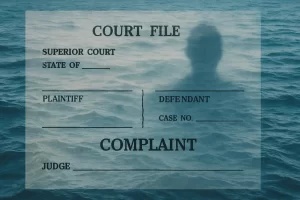
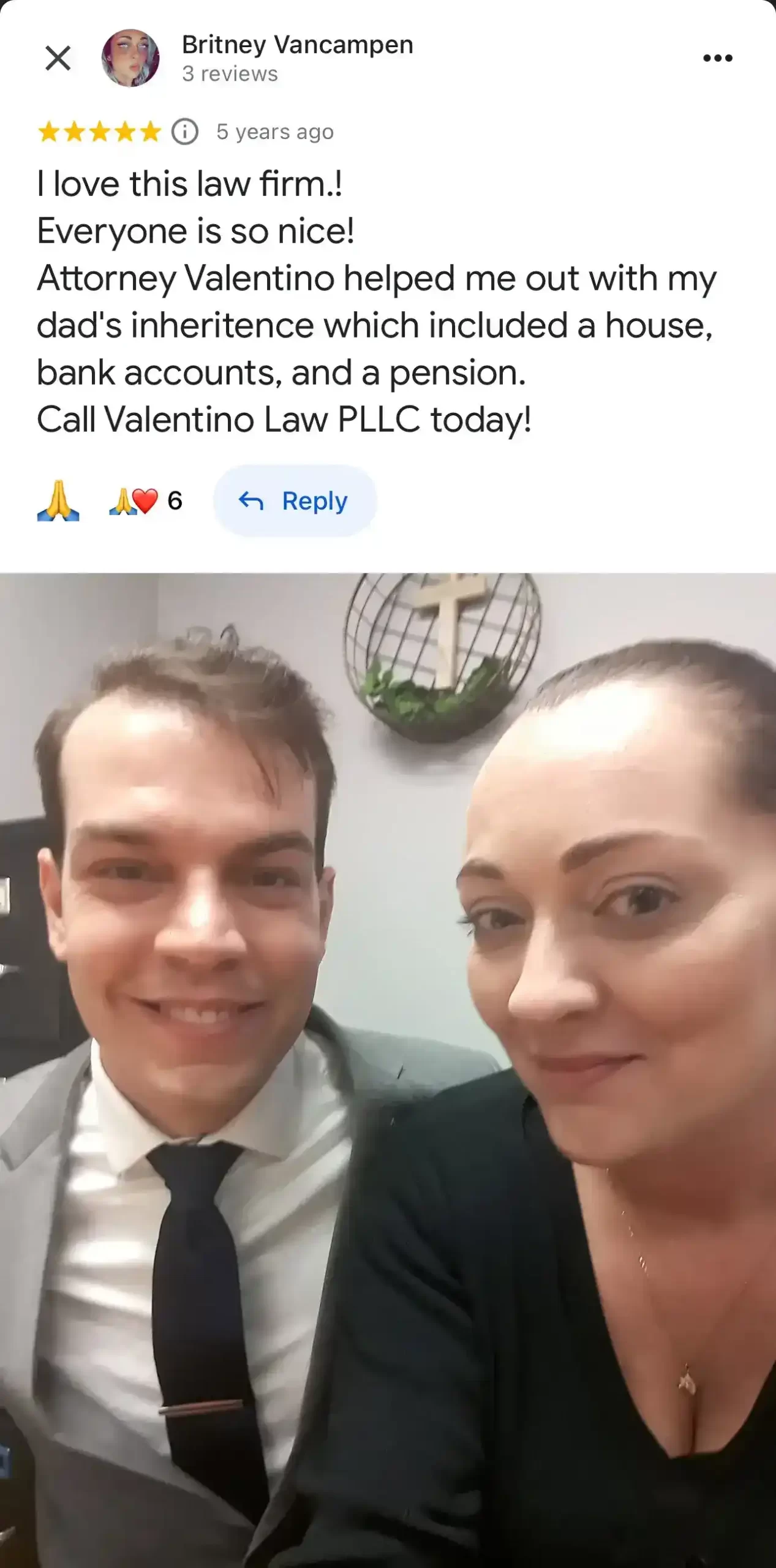
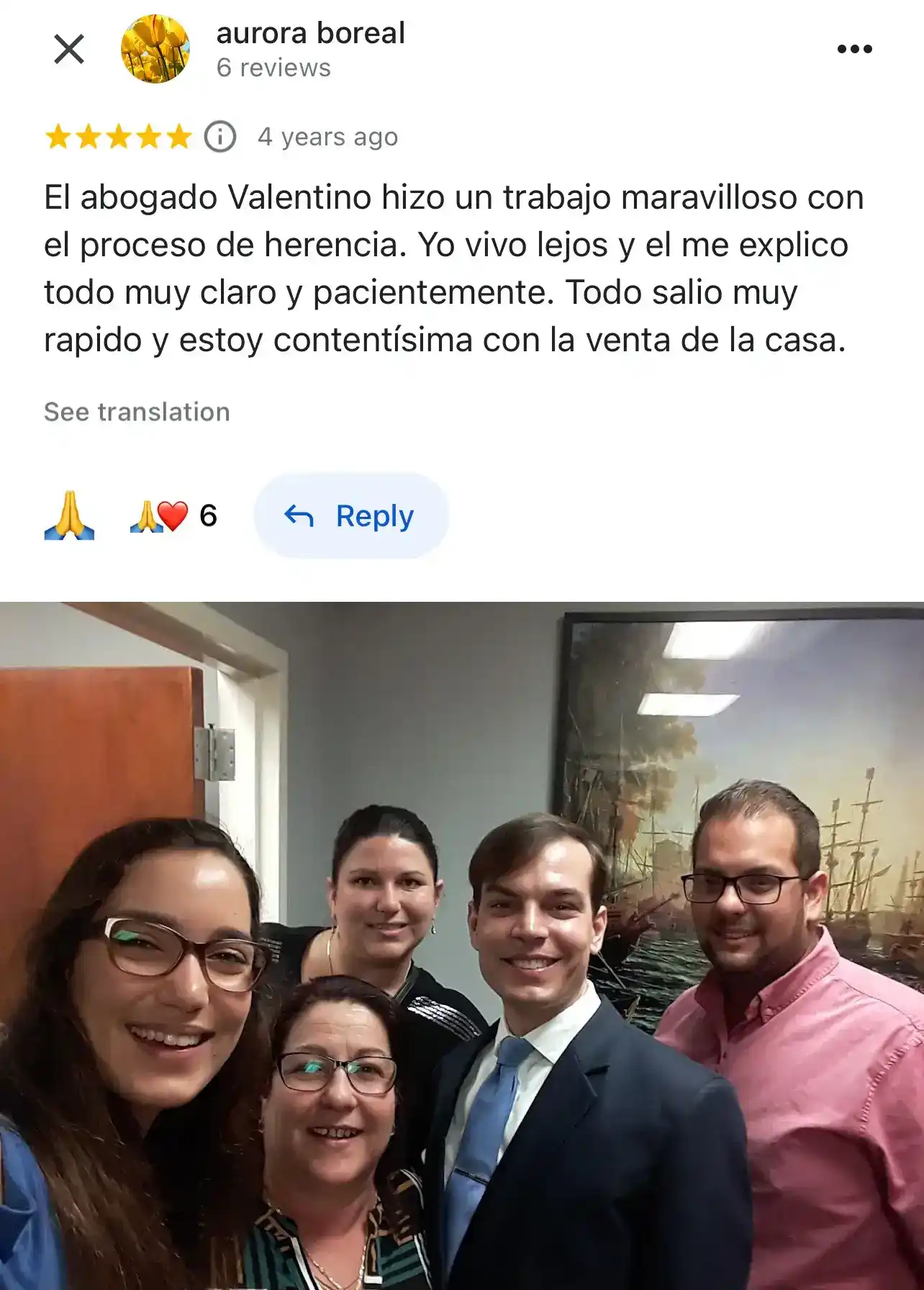


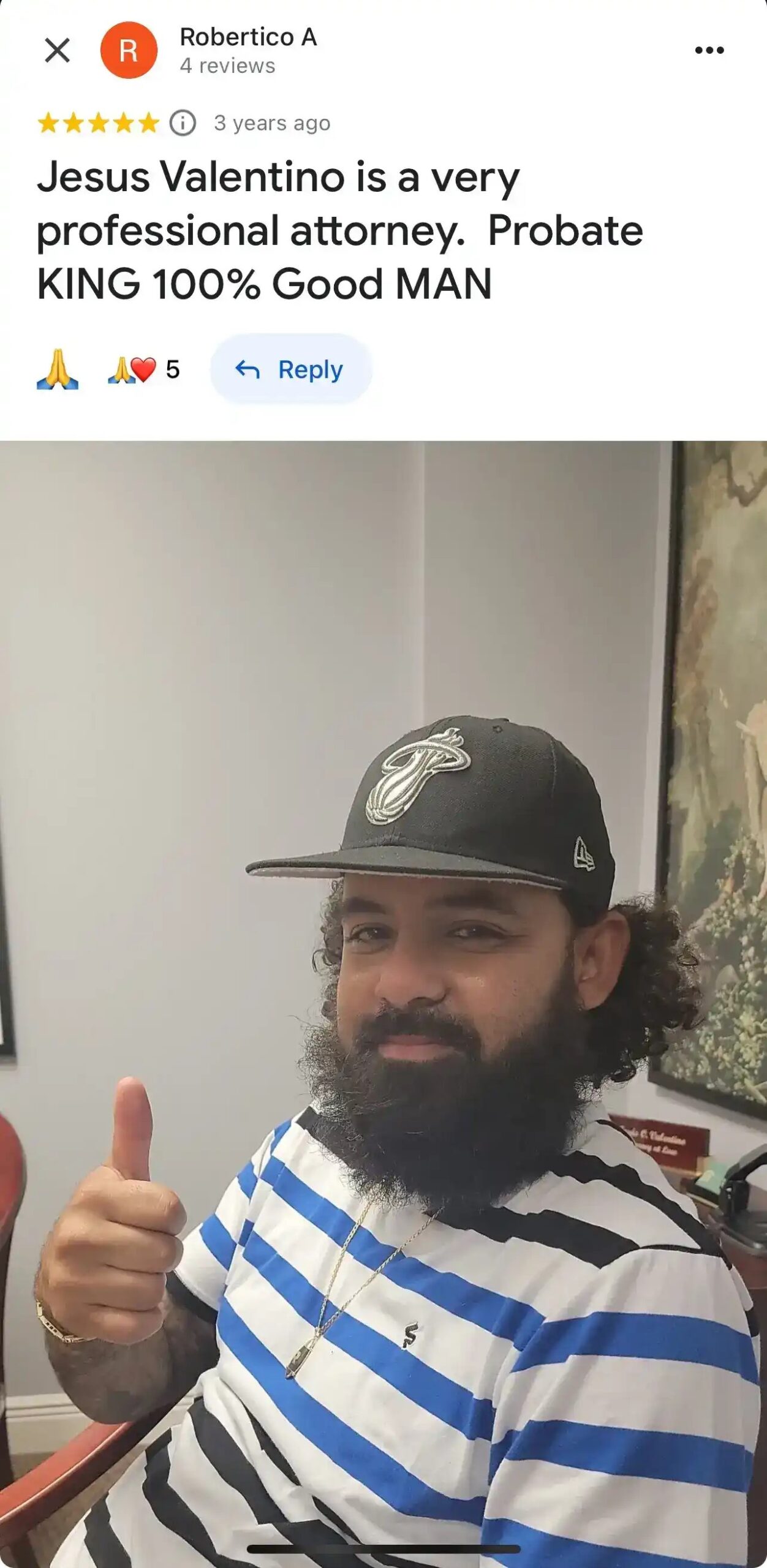







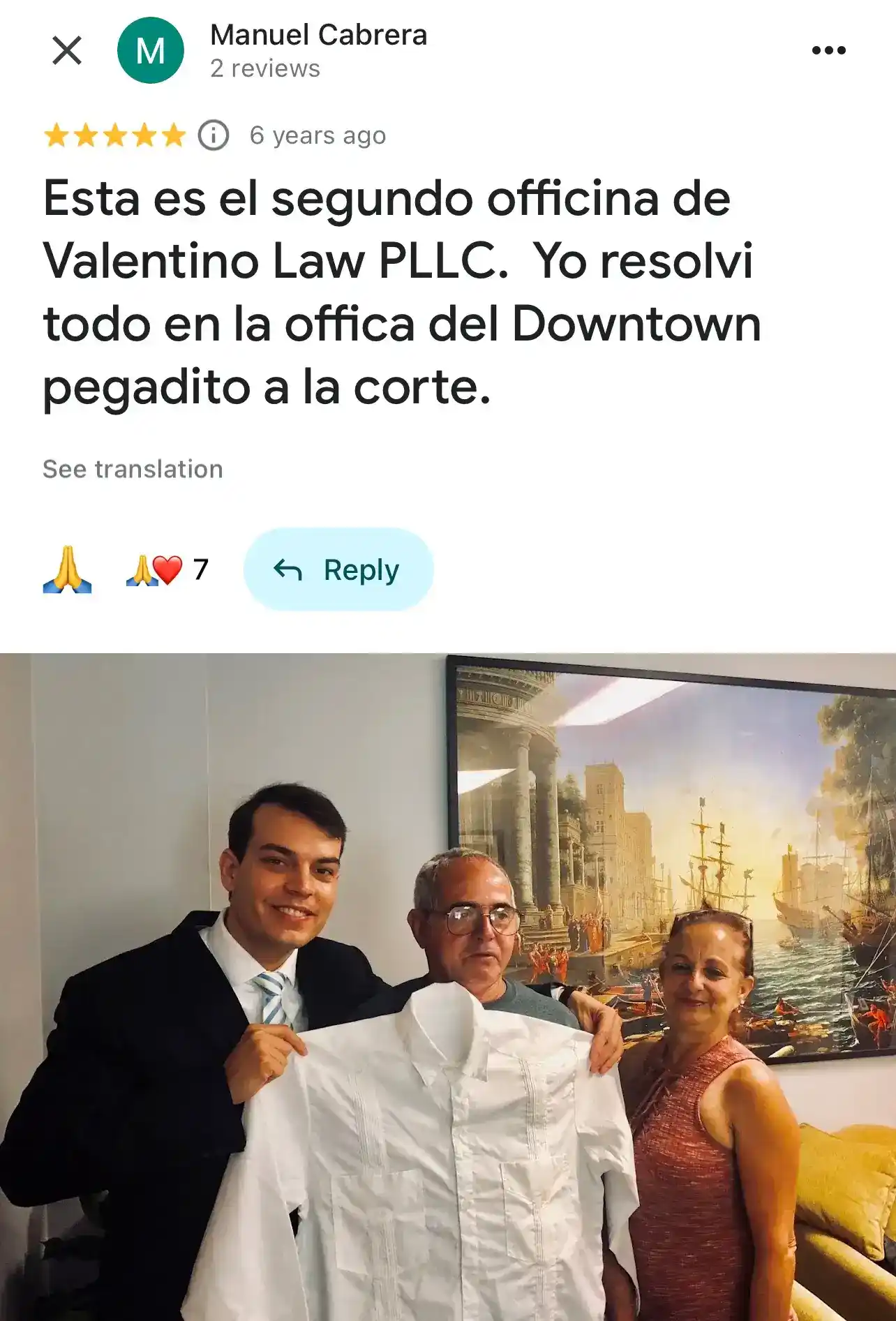

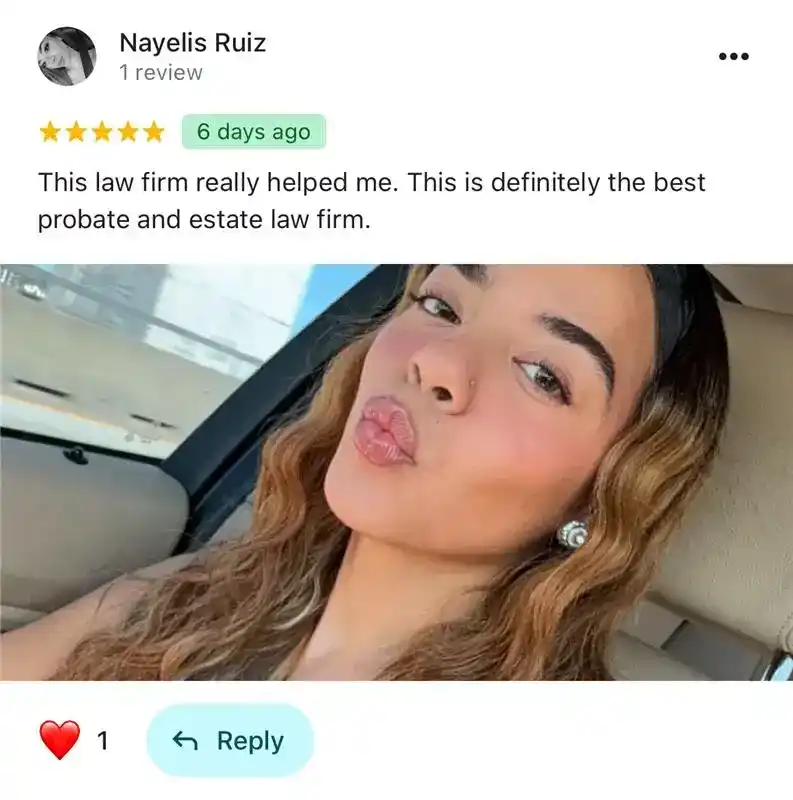




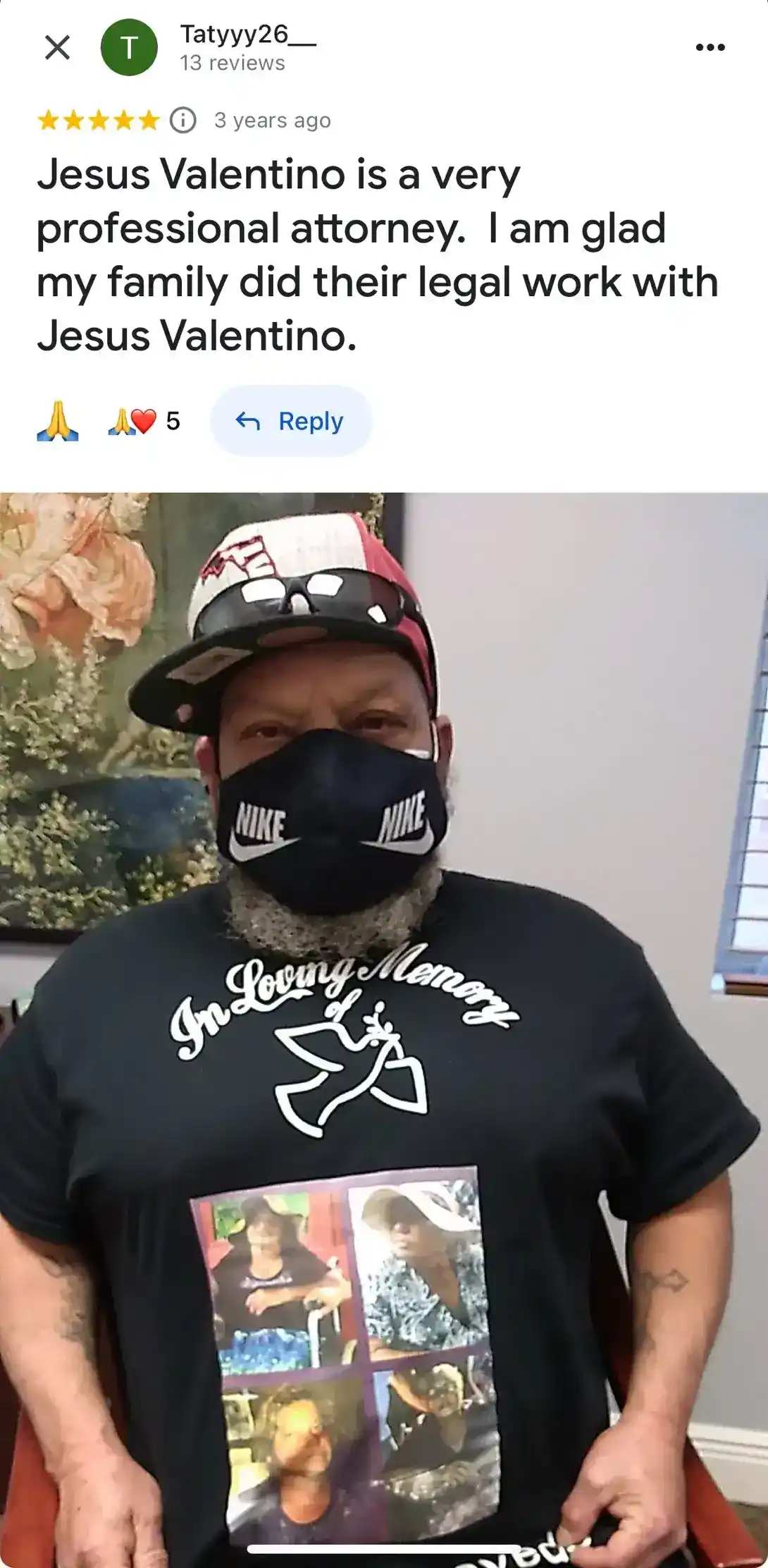

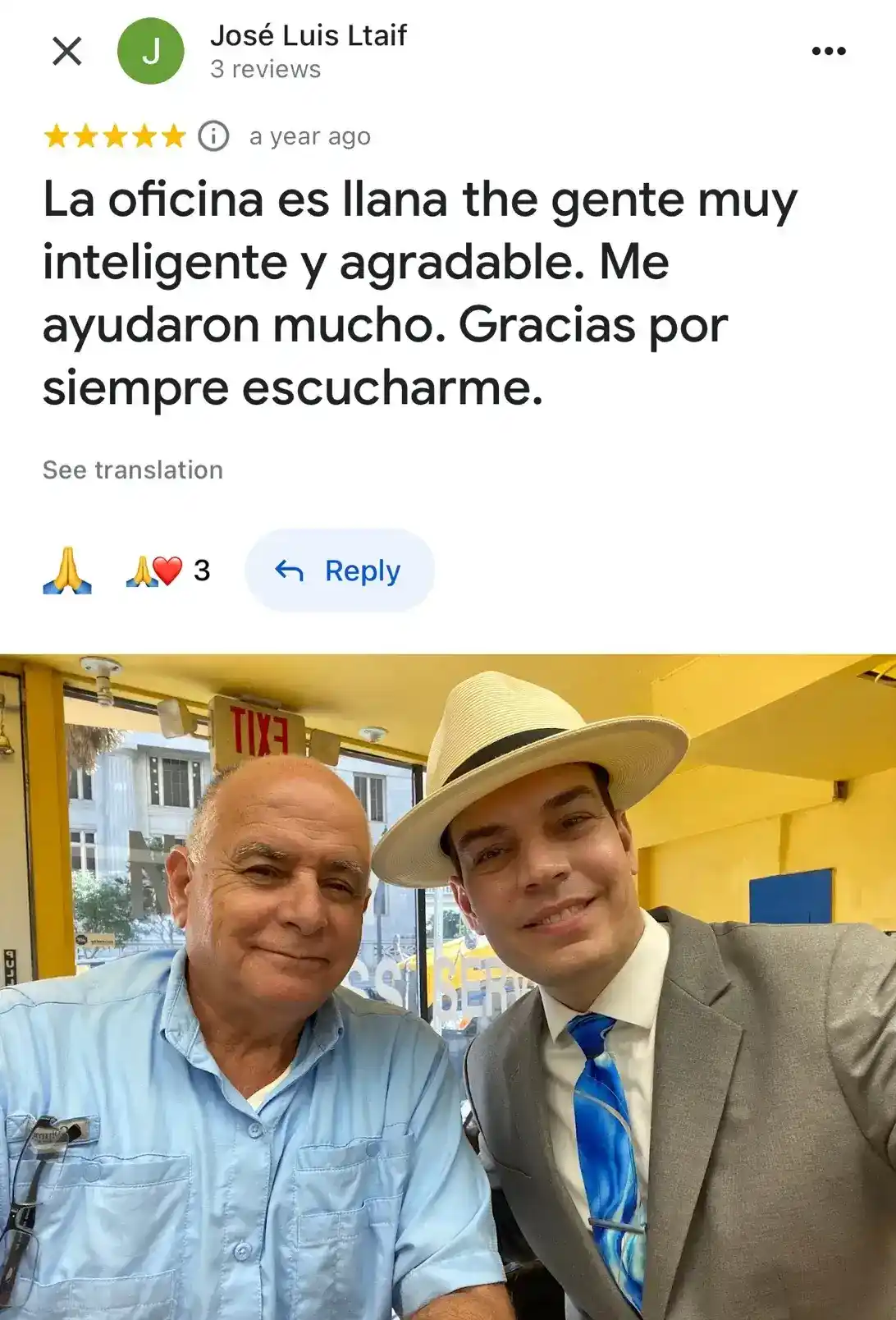
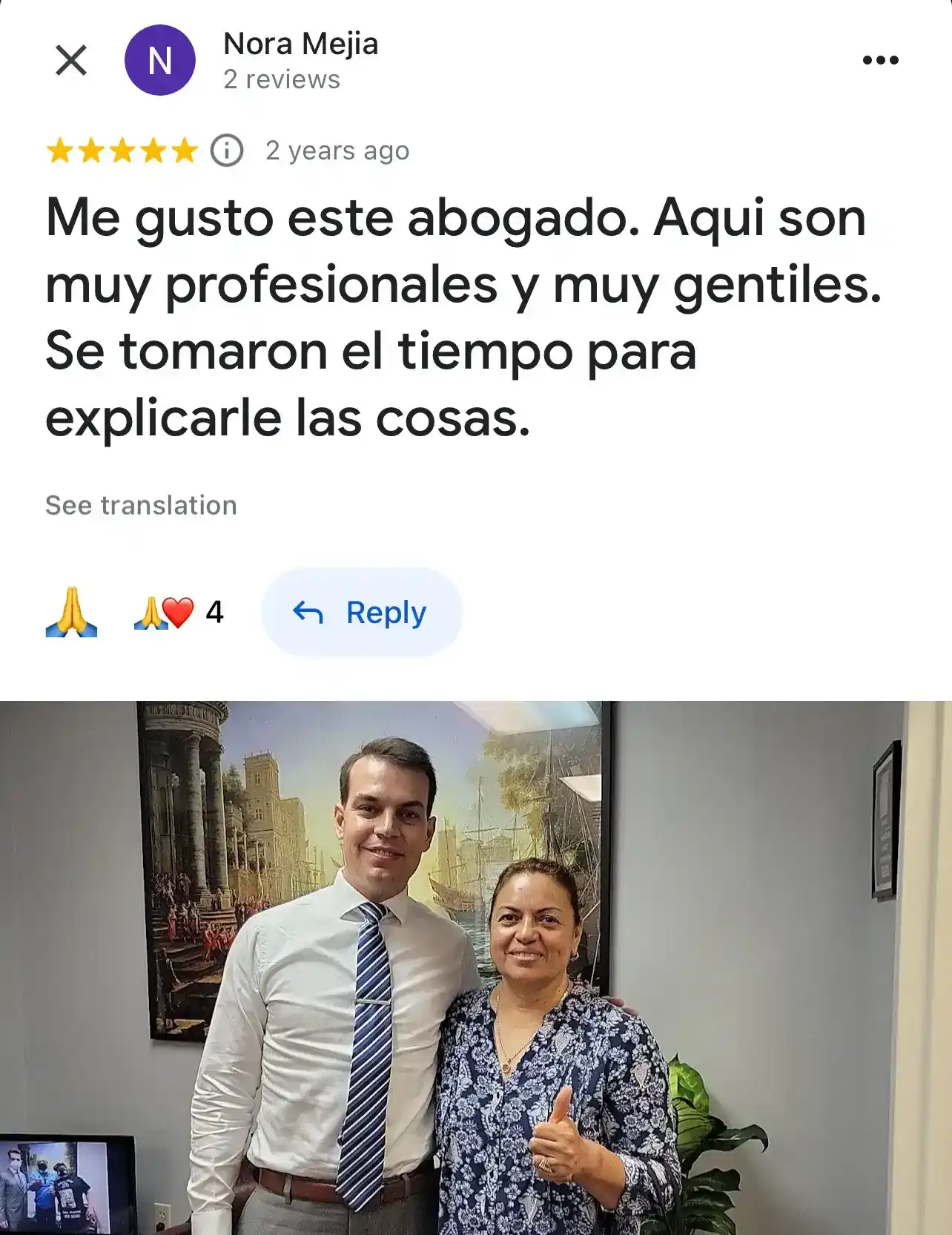






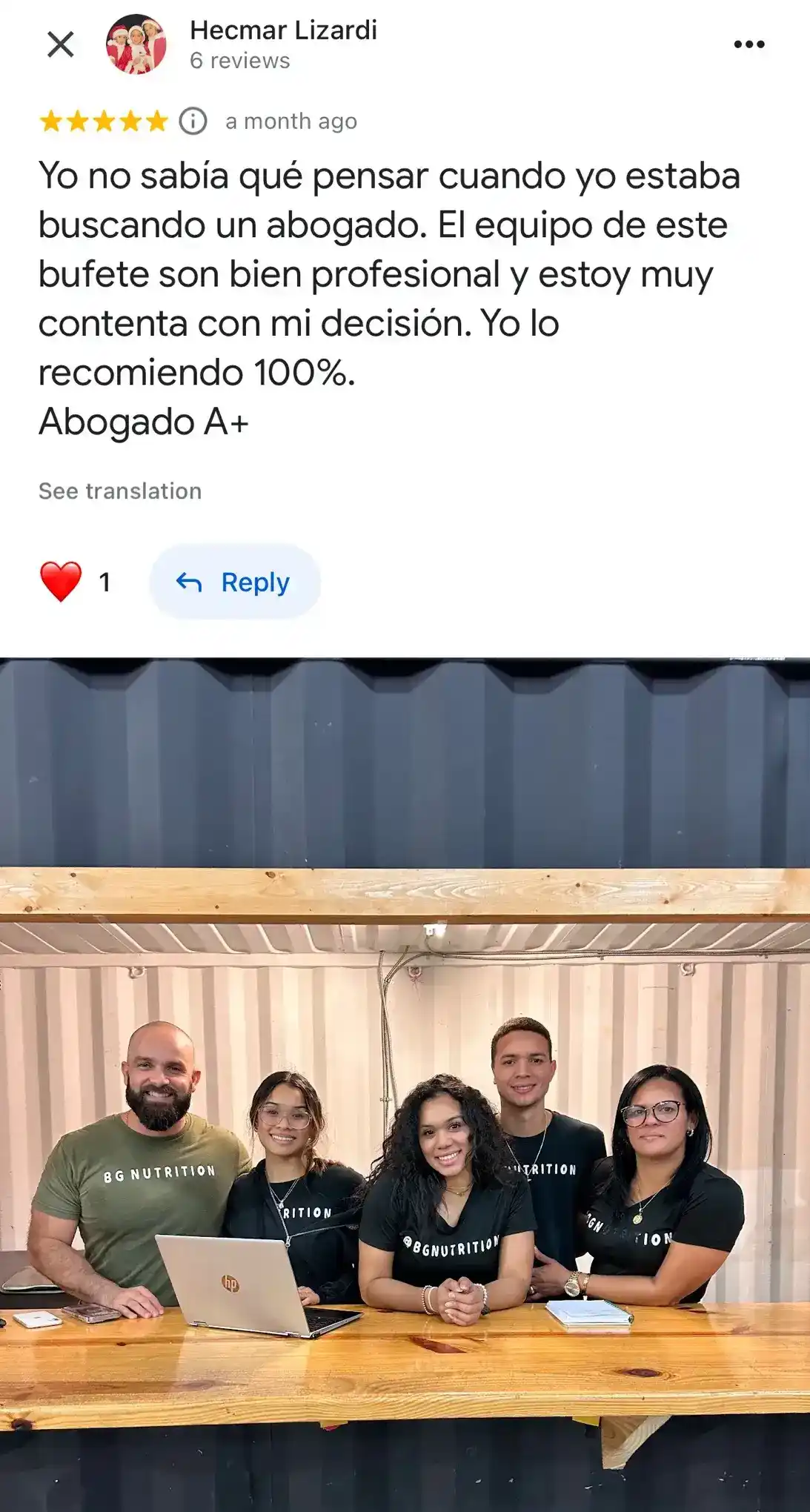
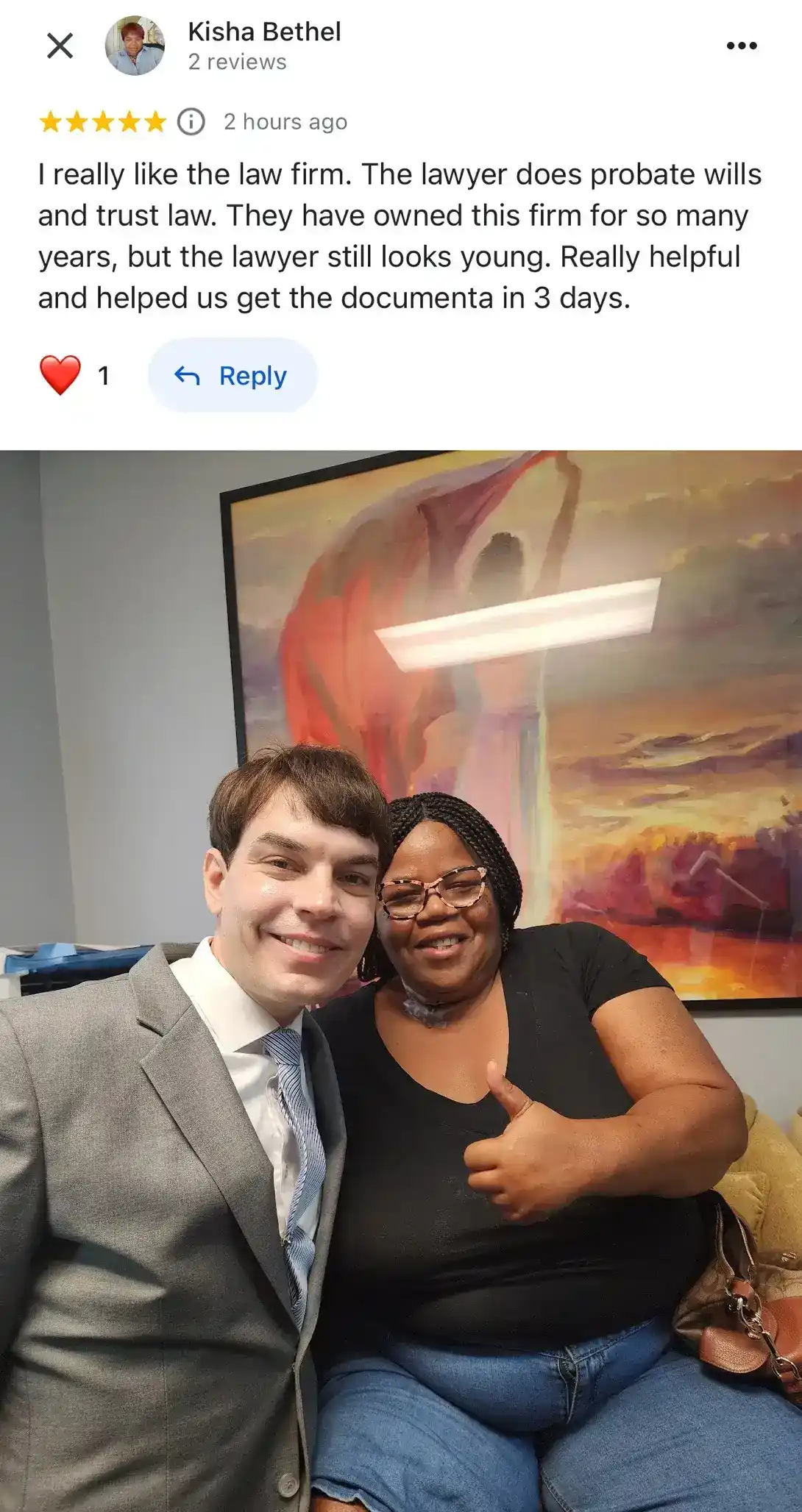
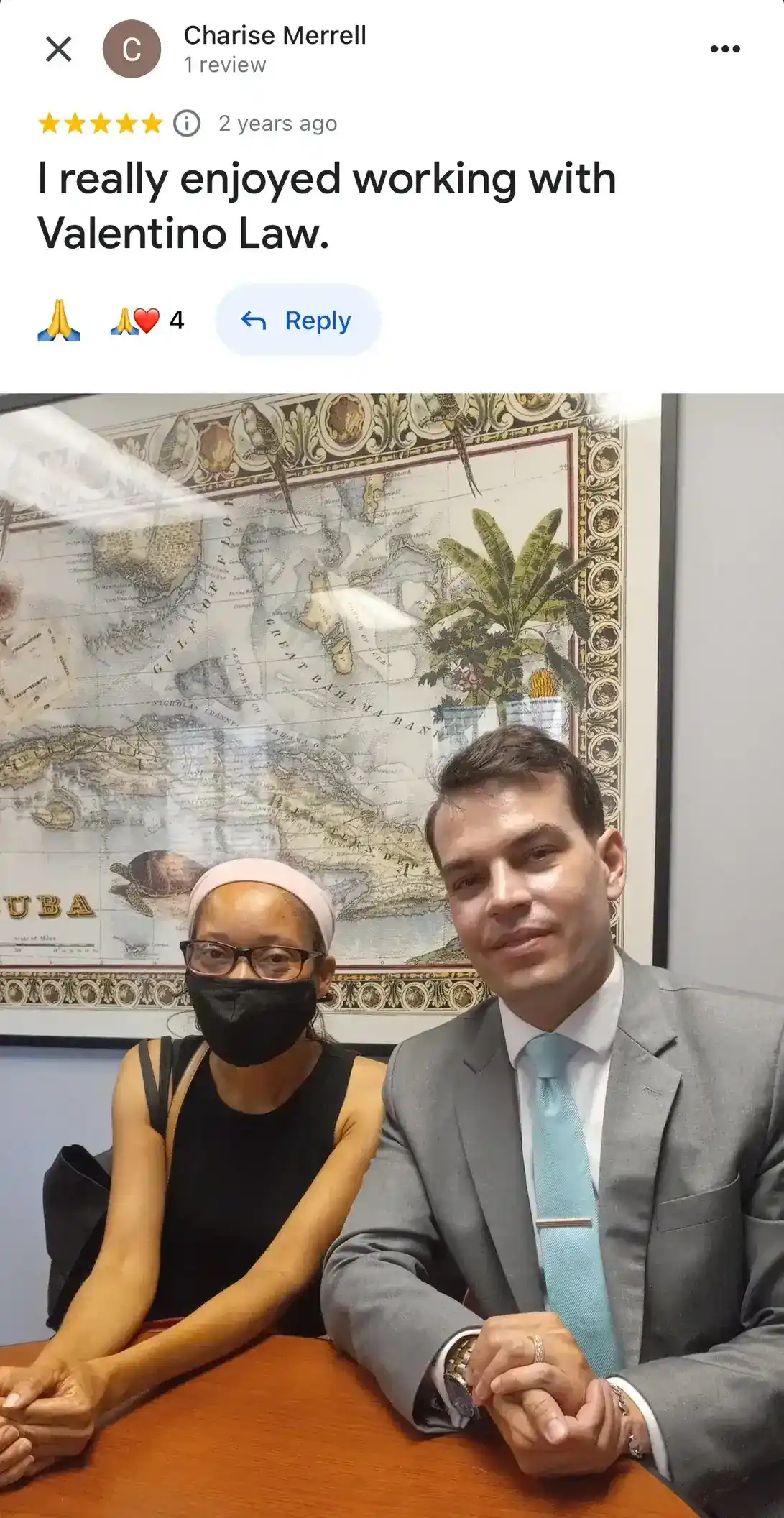
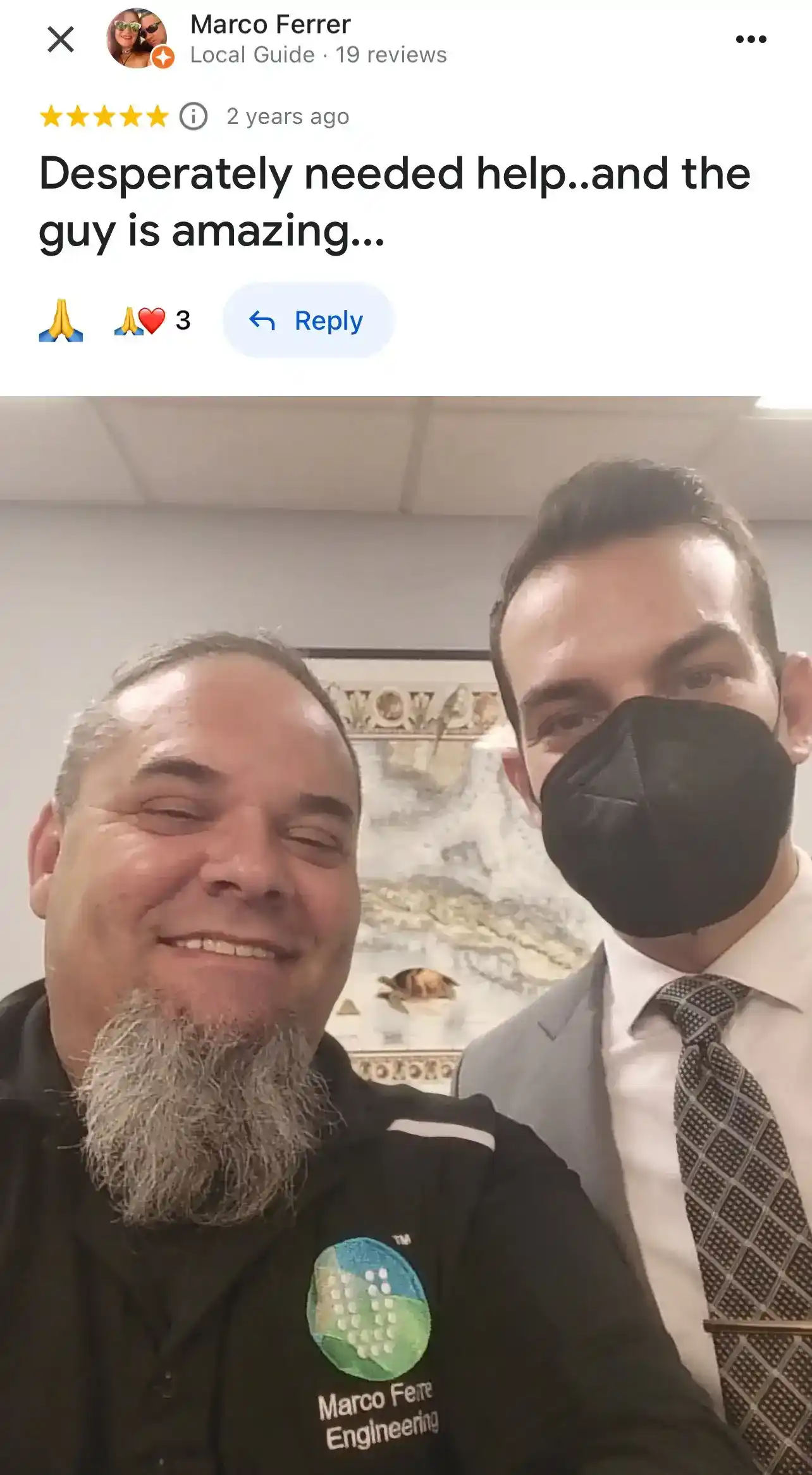

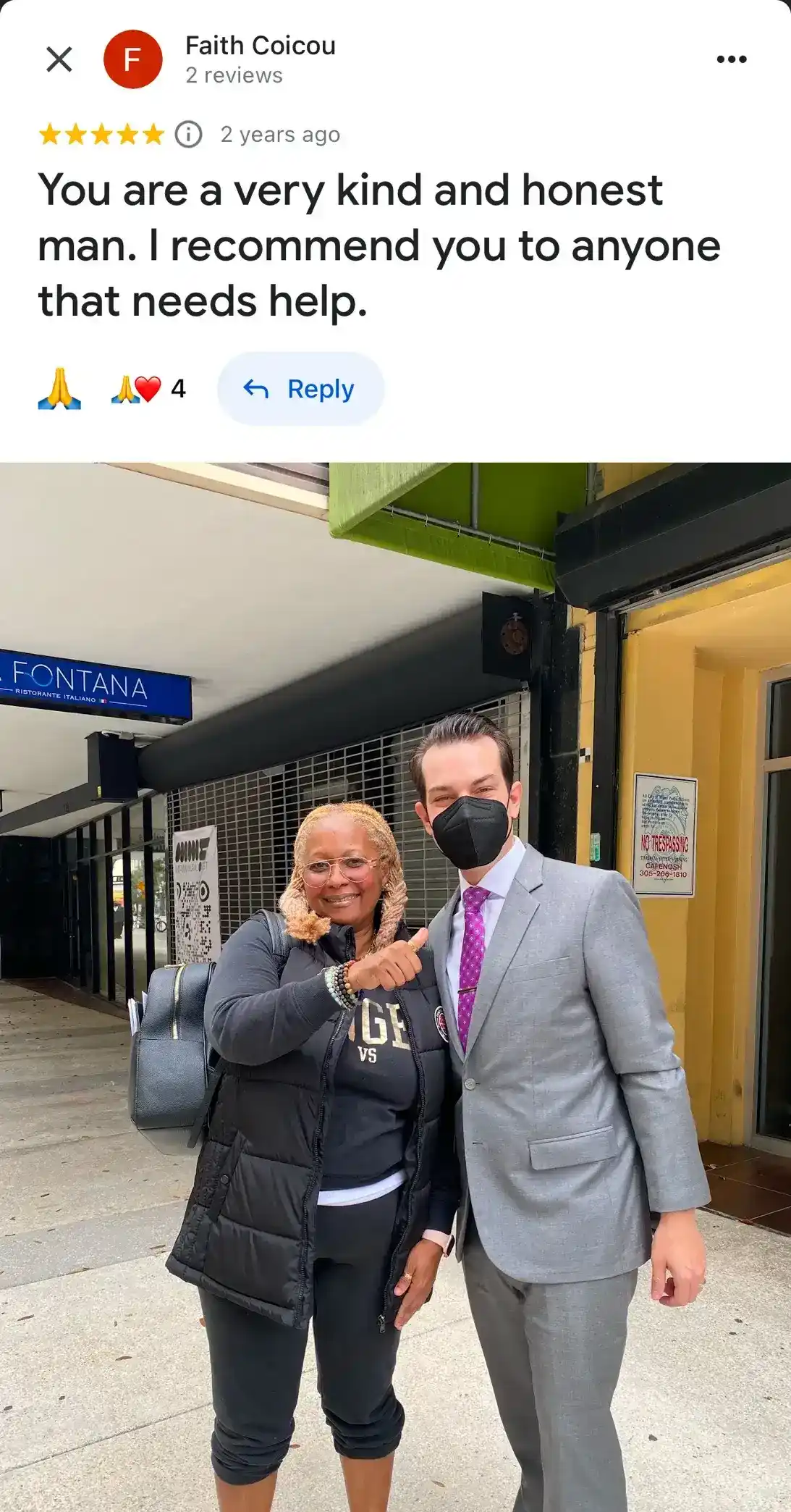
Share: